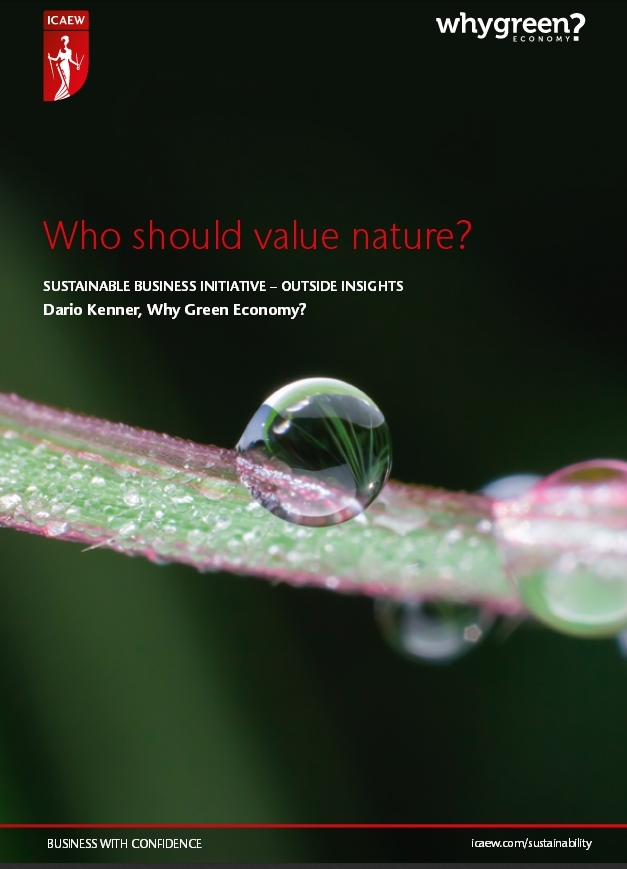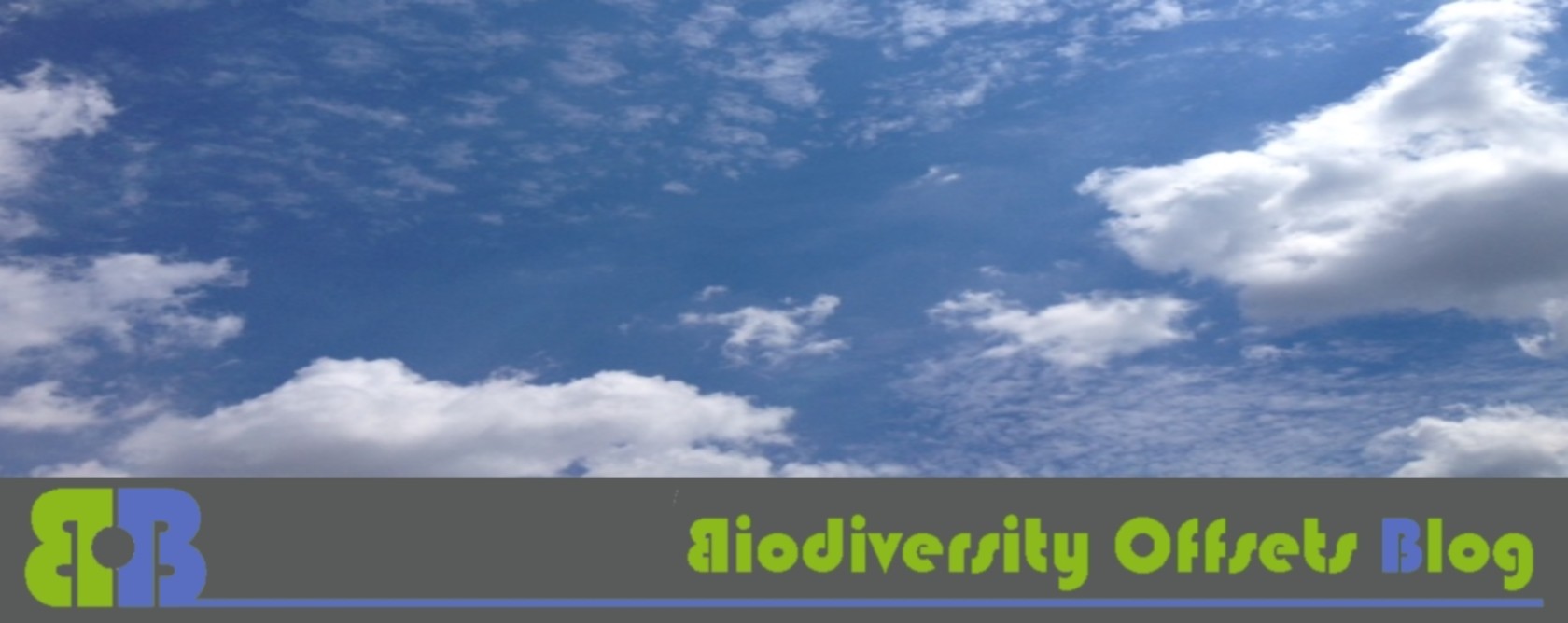 Dario Kenner (Why Green Economy?) has published a new report entitled “Who should value nature? Sustainable business initiative — outside insights”.
Dario Kenner (Why Green Economy?) has published a new report entitled “Who should value nature? Sustainable business initiative — outside insights”.
You can access the report online and find a pdf following: Kenner_2014_Who-should-value-nature. For more information please see the related article and the executive summary below.
Executive summary
Do you know how to measure the value of the fresh water you drink every day or the carbon dioxide captured by the Amazon rainforest? Is it even possible to calculate a monetary figure for these things? And if nature is going to be valued across the world who should do it: accountants, governments, companies or communities?
Natural capital has been defined as ‘the world’s stocks of natural assets which include geology, soil, air, water and all living things’.The logic behind the natural capital approach is that by placing an economic value on nature (often monetary) we will start to protect it. Instead of receiving things like pollination and climate regulation for ‘free’ we will factor the environment’s value into our decision making because we will know how much it’s ‘worth’.
But should we be doing this? Many of us can agree that nature has an intrinsic value. Is it now time to go a step further and place an economic value on nature? Critics say nature’s intrinsic value is priceless and argue monetary valuation will leave environmental protection at the mercy of market forces as nature is traded and speculated on.
The big focus of current debates on natural capital is if we should value nature and how to do it. While these largely abstract debates are crucial there’s another question that is very rarely asked: who should value nature? As the exclusive interviews in this report show this is an important question with no clear answers.
In trying to answer this question it’s useful to focus on who should value it in developing countries because this is where ideas on recognising nature’s ‘worth’ are really going to be put to the test. In the global south biodiversity-rich land is under intense pressure to be converted for mining, oil and gas extraction, logging, livestock, plantations, dams – the list goes on.
This momentum is only going to grow given that the vast majority of the world’s population lives in developing countries (where some groups are increasing their consumption), most of these countries depend on the extraction of raw materials for economic growth, and many developed countries have outsourced resources used for the products they consume.
But trying to work out who should value nature in developing countries is complicated not least because land rights in many areas of rich biodiversity are often heavily contested between states, indigenous peoples, local communities, private firms and individuals. In Sub-Saharan Africa it’s estimated that around 90% of land is untitled, while across the global south mineral, oil and gas, forest and agricultural concessions often overlap with indigenous lands.
Currently, it’s mainly expert bodies including consultancies, specialist companies, academia and conservation NGOs who are valuing natural capital in developing countries, although governments are also becoming increasingly interested. These expert bodies usually focus on monetary valuation because this is often what they have been asked to do. There is probably also a tendency to believe that monetary values will make a stronger business case to protect the environment. Another factor is the decision-making context which will determine if economic valuation is appropriate (see Appendix 2). It’s important to signal there is as yet no consensus on how to do economic valuation and this is why there are initiatives to harmonise methodologies.
Since who owns land in developing countries is not always clear, it’s important to explore how other actors like indigenous peoples value nature. This is an important question because their territories are estimated to cover up to 24% of the world’s land surface and contain 80% of the earth’s remaining healthy ecosystems. Indigenous peoples often already recognise non-monetary values based on a spiritual connection to their ancestral lands. For example, the Dongria Kondh indigenous community who live in the Niyamgiri hills in India successfully resisted a planned bauxite mine because of the spiritual value they placed on the area – they referred to the hills as their God and soul. This is a different approach that does not use complex economic models to place monetary values on nature. This different perspective on recognising nature’s value has led some indigenous peoples to strongly reject the natural capital approach.
With the debate raging fiercely on if nature should be valued it might seem better to postpone the question of who values for now. But because valuation (whether non-monetary or monetary) might be undertaken differently by different stakeholders it’s crucial to think about how the process would play out in practice (ie, whose values would carry more weight?) as this directly informs current debates on whether and how it should happen. For example trying to answer the question of who should value nature reveals it matters which stakeholders are valuing an area because the methodology they choose to use (of which there are many) will influence whether they place monetary or non-monetary values on an area.
Recognising there are diverse ways to value is important because contested land rights in the global south mean there are scenarios where different actors in developing countries will value the same area of nature differently. As the list of actors pushing for economic valuation grows – including accountants, consultancy firms, the private sector, governments, environmental NGOs, academics, United Nations agencies, and international institutions such as the World Bank – how do we decide who should do the valuing and whose values are taken into account? Which stakeholders have the power to limit valuation to non-monetary values or broaden it out to include monetary values? Who has the power to determine who has made the ‘right’ or ‘wrong’ calculation?

Pingback: (Last) Biodiversity Offsets Newsweek, December 8-31, 2014 - Biodiversity Offsets Blog